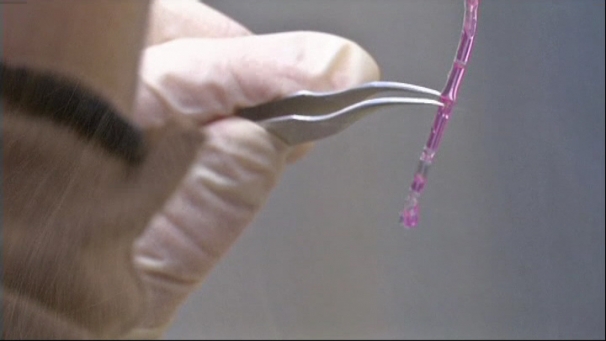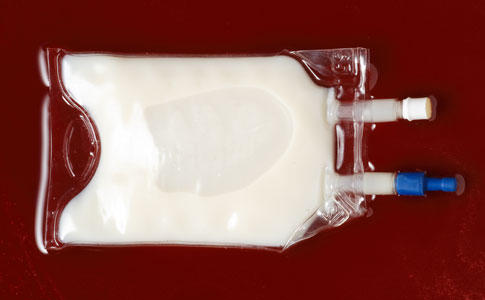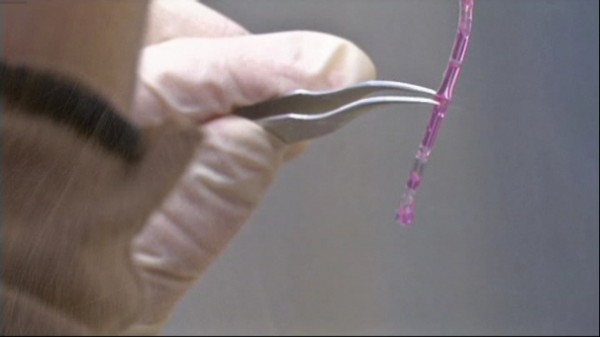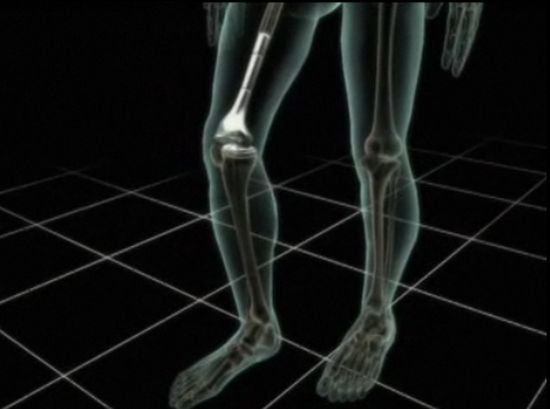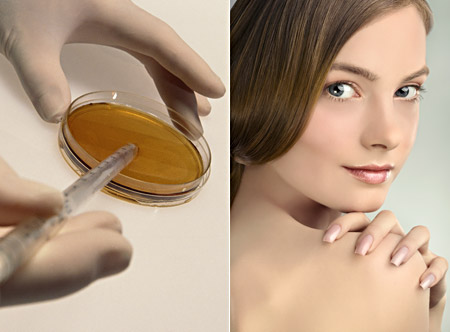7. Artificial blood
Although blood is not an organ but it is produced by an organ known as the bone marrow. The connotation of the term ‘artificial blood’ is a bit perplexing as organic blood executes many errands while the artificial blood is said to accomplish some of the objectives, not all of them in the human body. The escalating demand for the blood all around the world for a variety of reasons accounts for an ever-growing demand for blood reserves. If this task is accomplished, it will be one of the leading advancements in the field of health discipline.
[youtube]http://www.youtube.com/watch?v=mFXf7T8KFac[/youtube]
6. Artificial blood vessels
As we discussed artificial blood, we need artificial arteries and veins to carry artificial blood. Now this has just been made more promising by the researchers from Hokkaido University. They have produced artificial blood vessels by means of collagen obtained from the membrane of salmon.
[youtube]http://www.youtube.com/watch?v=hdt_0nH4U-s[/youtube]
Fortunately, the practice of salmon collagen is observed harmless due to the fact that there are no viruses known to the date that are transmitted from salmon to humans. Meanwhile researchers will try and experiment the following practice on dogs and after successful experimentation it could be possible to replace damaged blood vessels in human beings as well.
5. Artificial bones
Scientists have recently discovered that citric acid, when combined with 1, 8-octanediol, the outcome is an elastic and sturdy yellow rubber that can be shaped into an extensive range of shapes and then used to substitute damaged body parts. The polymer when combined with hydroxyapatite powder mix gives out a very stiff material that can be utilized to refurbish wrecked bones. Hydroxyapatite powder is the very same material of which natural bones are made of.
4. Artificial Skin
In the year 1996, an artificial skin was produced at Massachusetts Institute of Technology and it was FDA endorsemed for use on patients with relentless burn injuries. The said technique is implemented with chemically bonded collagen obtained from mammal tendons with glycosaminoglycan molecules from animal cartilage to develop a model of the extracellular matrix. This offers the basis for a new dermis. In the year 2001, a self-repairing plastic “skin” was developed and tested by US scientists. Very much like the real skin, it was able to bleed and heal itself, thereby a huge breakthrough in vital materials used in surgical implants.
[youtube]http://www.youtube.com/watch?v=5A3VlwNHGII[/youtube]


